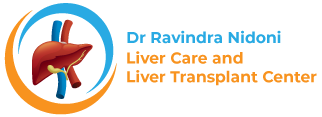Basics

Dietary advice for patients suffering from liver cirrhosis may vary depending on the individual’s specific condition and medical recommendations. However, here are some general dietary recommendations that may be beneficial for individuals with liver cirrhosis:
- Sodium Restriction: Limiting sodium intake is crucial for managing fluid retention and preventing complications such as ascites. Avoid adding extra salt to meals, and minimize consumption of processed and packaged foods that are high in sodium.
- Adequate Protein Intake: Protein is important for maintaining muscle mass and supporting overall health. However, in cases of advanced cirrhosis, protein metabolism can be impaired. It’s recommended to consume high-quality protein sources such as lean meats, poultry, fish, eggs and dairy products. The specific protein requirements is around 100gms/day for a 60kg individual. The protein requirement can be achieved by taking protein powder along with water or milk. Apart from this eggs are good source of protein.
- Fluid Balance: Monitoring fluid intake is important for individuals with liver cirrhosis, especially if there is a tendency for fluid retention or ascites. In some cases, fluid restriction may be necessary, while in others, a balanced fluid intake may be advised. Consult with a healthcare professional to determine the appropriate fluid intake for your specific condition.
- Alcohol Consumption: Alcohol should be completely avoided in individuals with liver cirrhosis. Alcohol can worsen liver damage and increase the risk of complications. It’s important to adhere to abstinence from alcohol to prevent further liver injury.
- Balanced Diet: Emphasize a well-balanced diet that includes a variety of fruits, vegetables, whole grains, and healthy fats. This helps provide essential nutrients, vitamins, and minerals necessary for overall health and supporting liver function.
- Vitamin and Mineral Supplements: In some cases, individuals with liver cirrhosis may require vitamin and mineral supplements, especially if they have nutrient deficiencies. However, it’s important to consult with a healthcare professional before starting any supplements to ensure they are safe and appropriate for your specific needs.
Remember, individual dietary needs may vary, and it's crucial to work closely with a healthcare professional or a registered dietitian who can provide tailored advice based on your unique circumstances. They will take into consideration your specific nutritional requirements, liver function, and any other medical conditions you may have.










